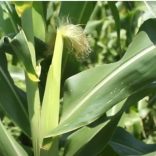New FAO project to boost agriculture trade between Zimbabwe and Mozambique
USAID supports combat against Fall Armyworm in Mozambique

US Agency for Development will support the fight against the Fall Armyworm maize pest in Mozambique with measures which include the training of agricultural technicians and production of manuals on the subject.
The United States Agency for International Development (USAID) announced on Tuesday that it had begun to consider programmes to combat the Fall Armyworm for inclusion in agricultural support projects in Mozambique.
The USAID action plan “includes the training of agricultural technicians and the production of manuals on the pest”, agency director said Hossan said at a press conference in Maputo after a meeting with Mozambican authorities to take stock of the pests’ current status.
Antónia Vaz, head of the Department of Plant Protection at the Ministry of Agriculture and Food Security, said that the impact of the plague would be “very large”.
The sense of urgency reflects maize’s position as a staple foodstuff in Mozambique, prompting the government to “seek more appropriate solutions for the management and control of this pest,” the person in charge press conference added.
Although troubling, the situation was not alarming, he said, and further measures were under way.
Domingos Cugala, a professor and researcher at the Faculty of Agronomy at Eduardo Mondlane University, said Niassa (north of the country), Maputo (south) and Zambézia (centre) provinces were worst affected.
The Sanga district in the Niassa province suffered a production loss of 90% in 2017, while districts in Maputo and Zambezia recorded losses of between 56% and 46%, respectively. Cugala pointed out that several pesticides are being tested in the fight against the disease, but that a definitive solution would probably combine botanical products and pesticides.
“We have lost the battle for eradication, and are now testing chemicals for both human health and environmental impact,” Cugala added. “There are several botanical products with insecticidal properties. We need to test their effectiveness because the pest is relatively new and we are working on a variety of solutions,” he concluded.













Leave a Reply
Be the First to Comment!
You must be logged in to post a comment.
You must be logged in to post a comment.